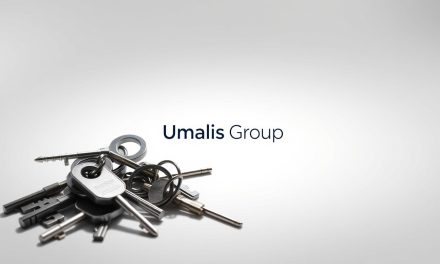Early in my career, I accepted a project that made my stomach twist every morning. The client demanded shortcuts that compromised quality, and our values clashed like mismatched gears. That experience taught me a vital lesson: building trust with clients starts with aligning your principles to theirs—even if it means walking away.
Professional independence thrives when your actions reflect honesty and transparency. Imagine explaining a project delay upfront instead of hiding it. Clients remember that integrity—it becomes the foundation for lasting partnerships. These choices aren’t just moral; they shape how others perceive your services and business.
Early projects often test your boundaries. I once spent weeks on a rushed deliverable, only to realize it eroded my self-respect. Now, I prioritize collaborations where mutual respect fuels progress. This shift didn’t limit my career—it accelerated it by attracting clients who value quality over quick fixes.
Balancing ideals with practical needs isn’t easy, but it’s necessary. Clear communication about timelines, fees, and capabilities prevents misunderstandings. When both parties share expectations, projects flourish. Your ethical code isn’t a restriction—it’s the compass guiding sustainable growth.
Table of Contents
Key Takeaways
- Shared values create stronger, more reliable partnerships
- Transparency builds trust faster than perfection
- Early career challenges help define non-negotiable standards
- Ethical decisions enhance long-term business reputation
- Saying « no » to mismatched clients protects your professional energy
Introduction to Freelance Work Ethics
The global shift toward independent careers has created a $1.5 trillion industry, with digital platforms fueling opportunities across 150+ countries. Professionals now manage projects ranging from short-term tasks to year-long collaborations, adapting to varied client expectations daily.
Current Market Dynamics
Online platforms like Upwork and Fiverr host over 20 million active users monthly. Clients seek specialists who deliver results while respecting three core priorities:
| Aspect | Traditional Work | Freelance Work |
|---|---|---|
| Accountability | Team-based oversight | Self-managed deadlines |
| Communication | Structured meetings | Real-time updates |
| Ownership | Shared responsibilities | Full project control |
Building Trust Through Action
Transparency separates thriving professionals from others. A 2023 survey revealed 78% of clients prioritize clear timelines over lower costs. For example:
- Confirming deliverables within 24 hours of agreement
- Providing weekly progress summaries
- Flagging potential delays immediately
Establishing a personal code of conduct early prevents misunderstandings. One graphic designer increased repeat business by 40% after sharing a checklist outlining revision policies and response times.
Key Principles of « freelance work ethics »
Clear ethical guidelines separate thriving professionals from those struggling to retain clients. A 2023 industry report found 63% of successful collaborations stem from consistent adherence to core principles rather than technical expertise alone.
Honesty and Transparency with Clients
Building trust begins with open dialogue. Professionals using itemized billing systems see 28% fewer payment disputes according to platform data. Effective strategies include:
- Sharing real-time progress dashboards
- Flagging potential delays within 4 business hours
- Documenting scope changes in writing
One web developer increased repeat business by 55% after implementing weekly video summaries explaining technical challenges in simple terms.
Commitment to Quality and Timely Delivery
Meeting deadlines demonstrates respect for clients’ operational needs. Industry leaders recommend:
- Buffer periods (add 15% to time estimates)
- Three-stage quality checks
- Automated milestone notifications
A case study revealed specialists who deliver early earn 23% higher ratings. However, 42% of professionals admit overcommitting during busy periods – a pitfall avoided through strategic project selection.
These practices create ripple effects – 81% of clients recommend transparent collaborators to peers. By embedding ethics into daily operations, professionals build sustainable ventures that withstand market shifts.
Strategies for Setting Boundaries and Saying No
Navigating client relationships often feels like walking a tightrope between opportunity and overload. Professionals who master this balance protect their energy while attracting collaborations that fuel growth.
Identifying Non-Negotiable Values
Start by listing three core principles that define your standards. Common red flags include:
- Vague project scopes demanding « flexibility »
- Requests for free trial work beyond initial consultations
- Last-minute deadline changes without compensation
A social media manager increased client satisfaction by 35% after rejecting rushed campaigns requiring unpaid overtime. Self-assessment creates clarity – document your dealbreakers before negotiations begin.
Learning When to Decline Projects
Use the « compliment + decline » method to preserve relationships. For example:
| Situation | Effective Response |
|---|---|
| Scope exceeds expertise | « This project deserves specialized skills I can’t provide » |
| Budget mismatch | « My pricing reflects the quality you’re seeking » |
Specialists report 28% fewer conflicts after implementing scripted boundary statements. Declining mismatched work frees time for partnerships where your strengths shine brightest.
Clear limits streamline your process – clients respect professionals who articulate needs confidently. One copywriter doubled her income within six months by focusing solely on clients valuing her niche expertise.
Honesty, Transparency, and Effective Communication

A client once told me their previous collaborator vanished for weeks mid-project. This breakdown cost them $12,000 in delays—a stark reminder that consistent communication forms the backbone of successful partnerships. When expectations align through open dialogue, projects thrive even when challenges arise.
Building Trust Through Clear Communication
Regular updates transform uncertainty into confidence. Research shows teams sharing progress every 48 hours experience 67% fewer misunderstandings. Practical approaches include:
- Scheduled check-ins matching client availability
- Brief video summaries explaining complex tasks
- Immediate alerts for timeline adjustments
One marketing specialist reduced revision requests by 50% after implementing Friday progress emails. Clients value predictability—knowing when and how you’ll share information builds reliance on your services.
Implementing Systems for Regular Updates
Technology streamlines transparency without draining time. Tools like automated dashboards or project management platforms let clients access real-time data. Consider these steps:
- Choose software aligning with client preferences
- Establish update frequency during onboarding
- Train clients to navigate shared systems
A case study revealed designers using milestone trackers completed projects 18% faster. When both parties view the same information, collaboration becomes frictionless—and reputations grow through demonstrated reliability.
Charging a Premium and Valuing Your Services
When I tripled my rates after mastering niche design techniques, clients began treating proposals as investments rather than expenses. Pricing reflects expertise—and those who recognize your value will prioritize quality over bargain hunting.
Assessing the True Value of Your Work
Calculate rates using three factors: specialized skills, market demand, and project complexity. For example:
- Hourly vs. value-based pricing models
- Industry benchmarks for your niche
- Client ROI from your deliverables
One consultant increased earnings by 140% after switching to tiered packages highlighting tangible outcomes. Clients perceive higher rates as indicators of reliability when you articulate measurable benefits.
Aligning Projects with Personal Values
Early in my career, I accepted mismatched assignments to build credentials. Now, I use a three-filter system:
- Does this align with my long-term vision?
- Will it challenge my capabilities positively?
- Does the client respect mutual boundaries?
This approach reduced burnout while attracting collaborators who fund innovative solutions. As outlined in our complete career guide, sustainable growth stems from selective partnerships.
Balancing income needs with standards requires courage. Start by reserving 20% of capacity for ideal projects while maintaining essential cash flow. Over time, premium clients will dominate your portfolio—and your self-worth will mirror your rates.
Maintaining Productivity and Discipline in Freelancing

Juggling multiple deadlines while preserving creative energy remains a daily challenge for independent professionals. Structured routines transform chaotic workloads into predictable, manageable streams—a critical skill when self-managing your business.
Time Management Techniques for Freelancers
Successful collaborators use these methods to deliver quality consistently:
- Time blocking: Dedicate 90-minute focus sessions to specific projects
- Priority matrices: Classify tasks by urgency and impact
- Automated tracking: Tools like Toggl provide insights on productivity patterns
A 2023 study found specialists using structured schedules completed services 31% faster. For example, one writer increased output by batching research, drafting, and editing into separate days.
Balance emerges when systems support creativity. Designers often alternate between free-form brainstorming and deadline-driven execution. This rhythm prevents burnout while meeting client expectations.
Adopting balanced workflow strategies ensures sustainable growth. Track progress weekly—adjust techniques until your process feels both disciplined and adaptable.
Ethical Practices on Upwork and Other Platforms
How do top-rated collaborators maintain flawless reputations on digital platforms? The answer lies in meticulous adherence to rules designed to protect both specialists and clients. By mastering platform-specific guidelines, you create partnerships built on accountability rather than uncertainty.
Navigating Platform Guidelines and Compliance
Every marketplace operates differently. Upwork’s Terms of Service, for example, prohibit direct contact before contract signing to prevent off-platform deals. Violations risk account suspension—a costly mistake when building your career. Key strategies include:
- Reviewing policy updates quarterly
- Using built-in messaging systems for all discussions
- Archiving communications for 180 days as proof of compliance
Professionals who document interactions reduce disputes by 63%, according to 2023 platform analytics. This approach ensures clarity if timelines or deliverables face challenges.
Preventing Misconduct and Upholding Copyright Laws
Copyright infringement claims increased by 29% last year across major platforms. Protect your portfolio by:
- Verifying client ownership of provided materials
- Using royalty-free assets with proper licenses
- Submitting original work through platform-approved channels
One graphic designer avoided legal action by rejecting a request to replicate a competitor’s branding. Platforms like those listed in our best freelance platforms guide offer mediation services to resolve such conflicts fairly.
Structured systems turn potential crises into trust-building moments. When both parties follow transparent processes, projects thrive within ethical boundaries—securing long-term success in competitive markets.
Conclusion
Building a thriving career as an independent specialist resembles constructing a house—without a solid foundation of principles, even impressive structures crumble. The strategies discussed—from transparent communication to value-based pricing—form the bedrock of sustainable professional relationships.
Adhering to a personal code of conduct ensures every client interaction reinforces trust. Whether through disciplined project timelines or respectful boundary-setting, these choices compound over time. They transform short-term transactions into partnerships that fuel growth.
Consider this truth: professionals who master their process rarely chase opportunities. Instead, they attract collaborators aligned with their standards. By embedding ethical practices into daily workflows—like clear scope documentation and proactive updates—you create systems that work for you, not against you.
The freelance landscape rewards those who prioritize integrity alongside expertise. Start small—implement one strategy from this guide each quarter. With consistency, you’ll build a reputation that opens doors to projects matching both your skills and values.
Your career trajectory depends not just on what you deliver, but how you deliver it. Choose methods that let you sleep well at night and wake up eager to serve. That’s the hallmark of true professional success.
FAQ
How do ethical practices impact client relationships for independent professionals?
Ethical practices build trust and credibility, which are critical for repeat business and referrals. Clear communication, meeting deadlines, and respecting agreements create a foundation for long-term partnerships.
What steps ensure quality and timely delivery in projects?
Establish detailed scope agreements upfront, use project management tools to track progress, and set realistic deadlines. Proactively flag potential delays to clients early to manage expectations.
When should I decline a project as a self-employed professional?
Decline opportunities that conflict with your values, exceed your capacity, or involve unrealistic timelines. Politely explain your limitations while offering alternative solutions if possible.
How can I maintain transparency with clients during collaborations?
Provide regular progress updates through preferred channels (email, messaging apps). Share drafts for feedback and clarify requirements before starting work to minimize misunderstandings.
What justifies charging premium rates for services?
Specialized expertise, proven results, and unique value propositions allow higher pricing. Research industry benchmarks and align rates with the complexity and impact of your deliverables.
What strategies help manage productivity without direct supervision?
Use time-blocking techniques, prioritize high-impact tasks, and eliminate distractions. Tools like Toggl or Asana help track workflows, while scheduled breaks prevent burnout.
How do I adhere to ethical guidelines on platforms like Upwork?
Avoid plagiarism, respect NDAs, and follow platform-specific rules. Use original content, secure proper licensing for assets, and draft clear contracts outlining deliverables and ownership terms.
Why is boundary-setting crucial for sustainable self-employment?
Boundaries protect against scope creep and burnout. Define working hours, communication protocols, and revision limits upfront to maintain work-life balance and professional integrity.





